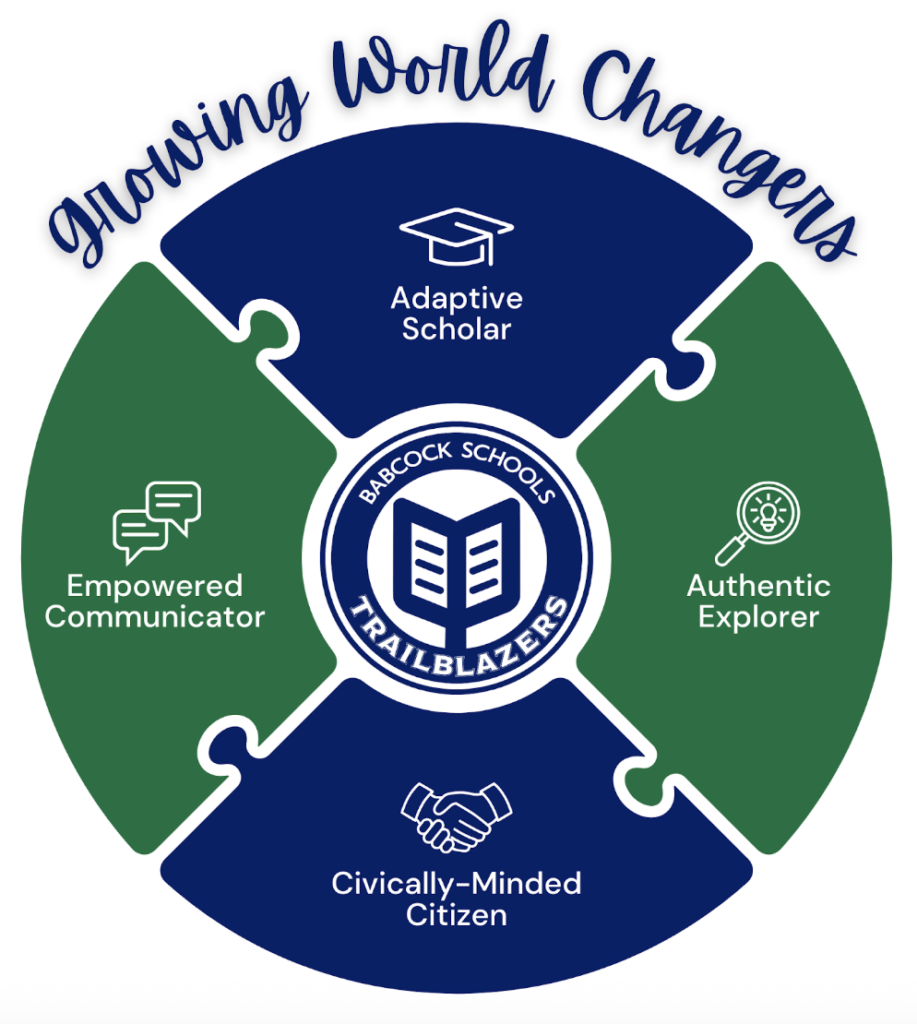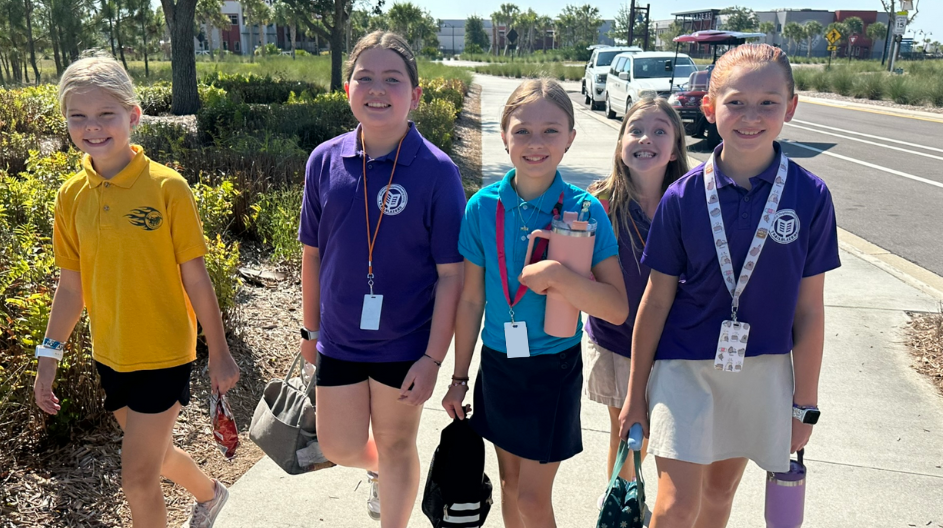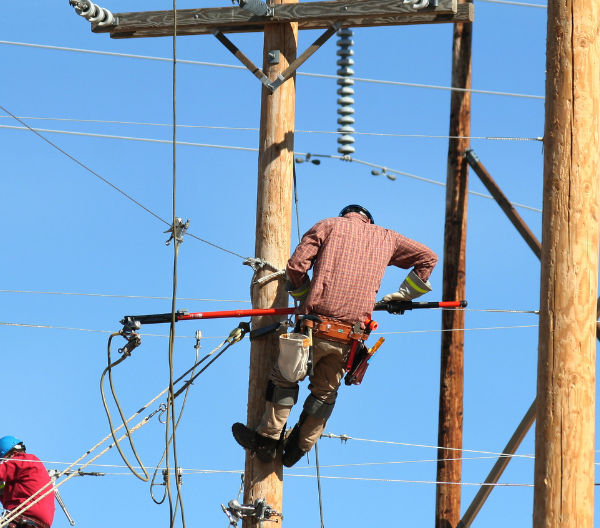At Babcock Schools, the future of learning feels a lot like the future of work: dynamic, student-driven, and grounded in real-world purpose. These public charter schools in southwest Florida aren’t just leveraging place-based education or project-based learning as instructional strategies, they’re using them as foundational systems to embed durable skills into every student experience.
I recently sat down with Shannon Treece, Executive Director of Schools, and Rachel Crawford, Instructional Coach, to learn about how their schools intentionally integrate durable skills into the classrooms. Their approach offers a clear and replicable model for transforming the way students prepare for life beyond graduation.
To understand what makes Babcock Schools unique, it helps to know its origins. Established in 2017, Babcock Ranch, FL, is America’s first solar-powered town. From day one, the school was envisioned as the heart of a sustainable, community-centered ecosystem. That vision permeates every aspect of the student experience. From exploring local environmental systems on nature trails to studying hurricane-resistant infrastructure and smart water management, learning at Babcock Schools is inherently authentic and connected to place.
Among the many qualities that set the school apart is the way its leaders have sought to weave durable skills into those experiences with intention. Early on, the school adopted project-based learning (PBL) as its instructional core. Teachers design interdisciplinary projects that align with academic standards, encourage community engagement, and require students to practice communication, critical thinking, collaboration, and adaptability in meaningful contexts. As Shannon Treece, Executive Director of Schools, put it:
We want those projects to be real-world. I don’t want fluff. I want businesses and organizations to come to us and say, ‘Hey, here’s our problem, help us solve it.’ And part of that is making sure community partners are engaged with us, because they’re going to bring validation for students that skills matter.”
Babcock Schools’ commitment to place-based learning adds another layer of relevance and purpose. From wildlife conservation projects to addressing infrastructure issues, students explore and impact the very community they live in. One example, described by Rachel Crawford, Instructional Coach, stands out. In a newly developing community where construction was displacing local bats, Babcock Schools gathered community partners to research the issue with their first grade students. The students determined that the best solution was to build bat houses to provide the animals with a new habitat. The school then hosted an event where students, families, and community members came together to build the bat houses, which are now installed along a nearby nature trail and successfully serve as shelter for a growing bat population.
In recent years, Babcock Schools took their approach to skills development one step further by developing a schoolwide “Profile of a Learner” based directly on America Succeeds’ Durable Skills Framework. Through a series of staff, student, and community engagement efforts, they honed that framework into four student-facing roles: Adaptive Scholar, Authentic Explorer, Civically-Minded Citizen, and Empowered Communicator. Each role is broken down by grade level into clear indicators and expectations.

Importantly, these skills aren’t just aspirational statements. They are embedded into project rubrics, reflected upon during student-led conferences, and presented publicly during formal end-of-year defenses. Students gather evidence of their skills throughout the year, then present their growth to panels of community members who provide authentic feedback. The school is currently piloting systems to integrate this work into a standards-based grading model and exploring tools like Mastery Transcript Consortium’s Progress Tracker to make durable skills visible and reportable.
In the effort to build innovative, high-impact educational experiences for students, they invest heavily in professional development for their educators. I asked Shannon and Rachel to describe how their educators engage in professional development for project-based learning, and their answers were indicative of the culture of ongoing improvement for both students and educators that has been built at Babcock Schools.
They described how Babcock Schools has created a robust professional development system in partnership with Magnify Learning, ensuring that teachers are well-equipped to design and deliver meaningful project-based learning experiences that embed durable skills. Professional learning is scaffolded by experience level: first-year teachers focus on understanding the school’s instructional model and foundational systems before engaging in PBL design, while second- and third-year teachers take part in Magnify’s Level 1 and Level 2 PBL training, with increasing expectations for project leadership and co-facilitation. More experienced teachers participate in Babcock’s annual summer “Design Camp” — a collaborative, working session where educators design multiple projects, refine practices, and explore topics like academic rigor and skill integration. Throughout the year, teachers co-develop project plans, present them to a “critical friends” group for feedback, and engage in structured reflection after implementation. As instructional coach Rachel Crawford put it, “We scaffold for our teachers like we do for our kids because [we] think that’s important… The whole purpose is for [teachers] to grow as a facilitator of project-based learning… every time they do PBL, [they] become better.” This intentional, iterative system of support ensures that educators are not only confident facilitators of project-based learning but also thoughtful practitioners of durable skills instruction.
The result is a learning environment where durable skills aren’t just taught, they’re lived. Students solve real problems for real audiences. First graders designed and built bat houses to address a local wildlife issue. Second graders advocated for safer playground materials and presented their proposal to the school board. High schoolers reimagined cafeteria logistics to improve the student experience. Whether these initiatives succeeded or failed, students learned resilience, collaboration, professionalism, and the power of using their voice.
What Babcock Schools shows us is that the development of durable skills doesn’t have to be an abstract add-on to traditional academics. When schools prioritize connection, reflection, and real-world application, students naturally build the human capabilities that matter most.
At America Succeeds, we often talk about education as the key to unlocking opportunity. Babcock is showing us what that looks like when done well: a school community that cultivates curiosity, celebrates collaboration, and prepares students to lead lives of purpose.
While Babcock Schools is still refining its model, they make it clear that the road to durable skills development can start with something as simple as community engagement, a thoughtful project, and a belief that students are capable of more than we often give them credit for.
Curious about how your school model might utilize America Succeeds’ Durable Skills Framework? Drop us a line at info@americasucceeds.org.




